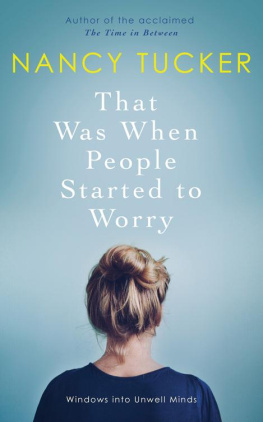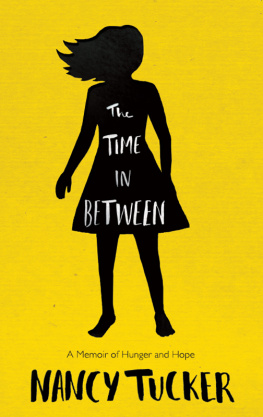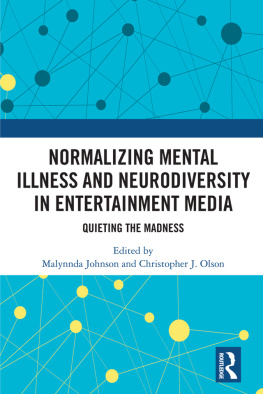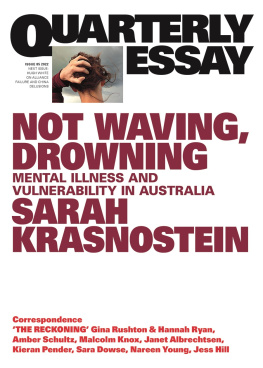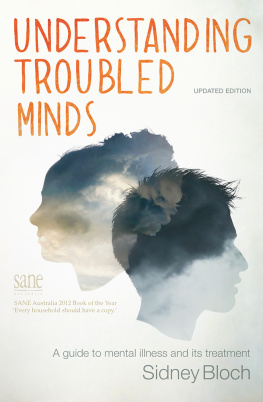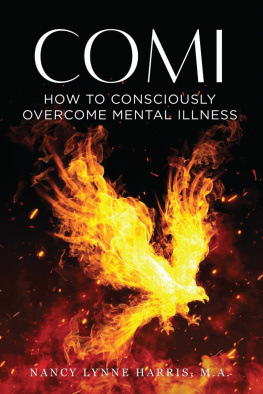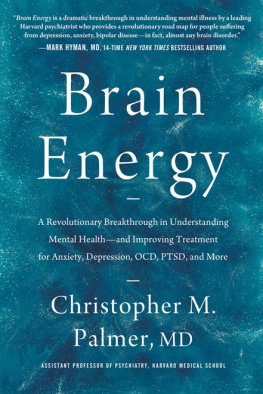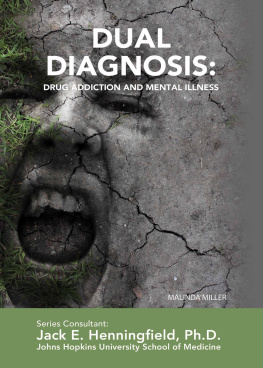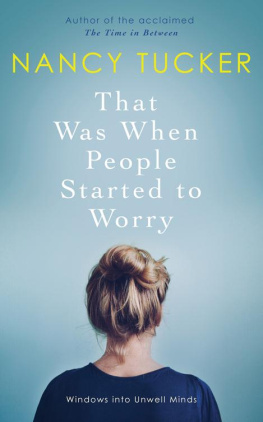People say mental health isnt discussed, and thats why no one understands it properly. Thats bullshit though. I cant go on Facebook without seeing ten or twenty posts about mental health. Maybe this is just me being blind and privileged, and Im sorry if thats the case, but I feel like mental health is discussed more and more these days. And yet still no one really understands. You cancel arrangements because youre physically ill, and youre unlucky. You cancel arrangements because youre mentally ill, and youre flaky. Youre always bailing. You take time off work for physical illness, and its unavoidable; you take time off work for mental illness, and youre slacking. The posts about mental health that get shared on Facebook and retweeted on Twitter a lot of them are great, but more of them are awful. They say nothing nothing at all and then at the end they say STIGMA or RAISING AWARENESS or IF THIS JUST HELPS ONE PERSON, as if those words were anything more than empty buzz-phrases. Whats wrong with contemporary representations of mental health? Well, for starters, they shouldnt be called representations of mental health, because mental health is just the state of the inside of your head, the same way diet doesnt actually mean weight-loss plan, it just means what you eat. If were talking about mental ill-health, were talking about mental illness. So whats wrong with contemporary representations of mental illness? Theyre sanitised. Theyre superficial. Theyre tokenistic. A lot of the time, theyre just inaccurate. I know I sound horrible saying this, and dont get me wrong, it is really great that were working towards a better understanding of psychiatric as well as physical disorders, but I dont know. I just feel like were not there yet. Yeah. To put it mildly, were not there yet.
Laura, 23
On the 31st of March 2015, I was flitting around a crowded bookshop like a scrawny, nervy star. There were stars on my dress and stars on my earrings and stars behind the lids of my eyes when I moved too quickly because I hadnt eaten in three weeks. I was all sharp edges. There were stars on the cover of the book I had written about eating and not-eating and self-discovery and self-destruction. Tiny, hopeful, yellow stars. Im flying, a tiny, hopeful, yellow voice tinkled in my ear. Im flying, Im flying, Im flying.
On the 31st of July 2015, I was tethered to earth by a hollow tube, harnessing me to a tall, metal stand. Salty fluid chilled my arm and swilled the poison from my blood. My edges were gone, swallowed up by flesh I had thought I would never see again. Loose, hateful flesh, weighing me down like sand in a doorstop. All around were puzzled faces, furrowed brows: You wrote a book? You have a job? Youre going to university? Whats wrong with you? Why do this? When I met their gaze, I felt the sharp points of a thousand shattered stars prickle behind the lids of my eyes, and I crossed and re-crossed my arms over the body I had tried so hard, and so repeatedly, to exterminate. Im falling, a repetitive, unexterminated voice scratched in my ear. Im falling, Im falling, Im falling.
On the 31st of December 2015, I felt as if I were buried deep underground, earth and rock and paving stones pressing down on my tired body. You can only fall so many times before you start to fracture. I was disintegrating into splinters of a soul, the raging voices thrumming in my ears a cacophony of blame and bile. Useless! Disgusting! Failure! When the nurses stitched up the patterns carved into my arms, they forgot to knit together the great, gaping wound in my chest. I walked out of the hospital, all fixed up, spilling dirt and desolation from the gash between my ribs. Im broken, a dirty, desperate voice droned in my ear. Im broken.
This is mental illness. It is vicious waves slamming you onto a rocky shore, and your tired body dragging itself up, and vicious waves slamming you back onto the rocks, and your tired body dragging itself up, over and over, until you think you might as well lie down on the sharp edges and let the water subsume you. It is smiling faces in the distance, bobbing above a picnic blanket, rolling their eyes and raising their hands: Why dont you just stand up? Stand up come and join us! Its gorgeous over here! It is unexpected strength and unusual luck and an uninterrupted string of steps. Knee-deep, then ankle-deep, then the sun on your face and salt on your tongue. When the next wave comes an unannounced, unkind fist it knocks you forwards. You wipe grit from your eyes and swipe blood from your knees and cough mud from your lungs. In the distance there are smiling faces and raised hands: Why do you keep falling over?! Just stand up! Its gorgeous over here!
At the beginning of 2016, I was marooned on the rocks. The previous year had seen me soaring, giddy on the high of self-confession and self-discovery and an ever-present undertone of self-destruction, until running out of momentum mid-flight I had come tumbling from the sky. Swathed in shame and bruised from the fall, I had walked into my university room three months after walking into a room on the psychiatric ward which had tried to stick me back together again, and I felt no more at home in the former than the latter.
What went wrong? people asked, six weeks into term, when I crumbled spectacularly and was bundled back home. What was it you couldnt cope with?
I wanted to say: I couldnt cope with being me. I couldnt cope with finding myself in a brand new setting and being unable to turn myself into a brand new person. I couldnt cope with the myriad hours I spent frantically, privately filling and emptying myself, or the blades I carried in my pencil case, or the search history crowded with questions about how many paracetamol tablets I would have to take to definitely die. I couldnt cope with the drone in my head telling me: You dont deserve to be alive. You dont deserve to be happy. You are a horrible, terrible person.
I didnt say that. I said there was a lot of pressure, and I struggled to keep up, and I felt homesick. And some people smiled and said: Yes. You poor thing. And other people smiled and said: But everyone feels like that when they leave home. And other people said: Running away never helped anyone. And other people rolled their eyes and wrinkled their noses and thought: God. What a fuss.
I was terrified by what was happening in my mind but I had already given my brain a book of its own. My insides had been scraped out and plastered onto the page, and my eyes needed to be swivelled outwards. So I rolled up my sleeves and prepared to sink my hands into the dark, gruesome innards of mental illness in the wider world. I wanted to climb into the grimiest corners of the unwell mind, and open the curtains keeping those corners trapped in gloom. I wanted to invite outsiders to peek through the grubby windows and see what its really like. I wanted to give voice to those whose internal demons rendered them dumb.
Over the following months, I contacted and met 70 young women of all classes, colours and creeds and heard stories of pain so visceral it knotted itself around my own nerves. We met in pubs and coffee shops, bedrooms and university houses, kitchens and living rooms. We talked about transformations from happy child to tortured teenager to hardened twenty-something. We talked about difficulties that had been waiting in the wings from birth, ready for a grand entrance. We talked about settled, normal younger years, disintegrating to disarray in adulthood. These women allowed me to slip through tiny gaps in their armour, and stand shoulder to shoulder with the most bruised and battered parts of themselves, usually concealed from the melee of the outside world. The experience was harrowing, heartening and humbling.

